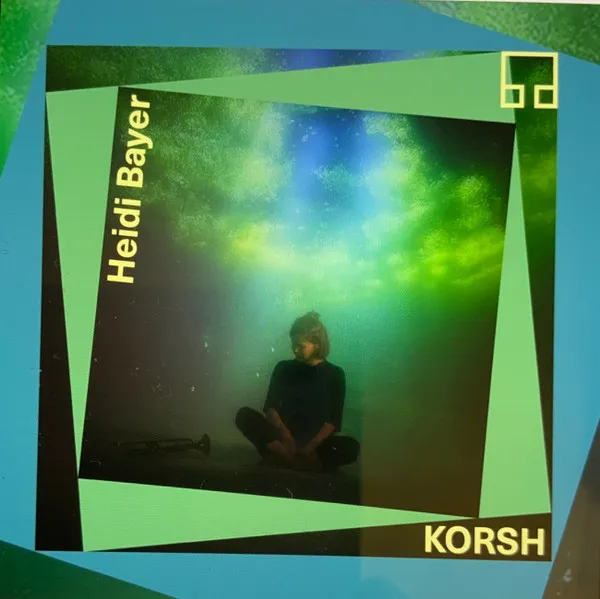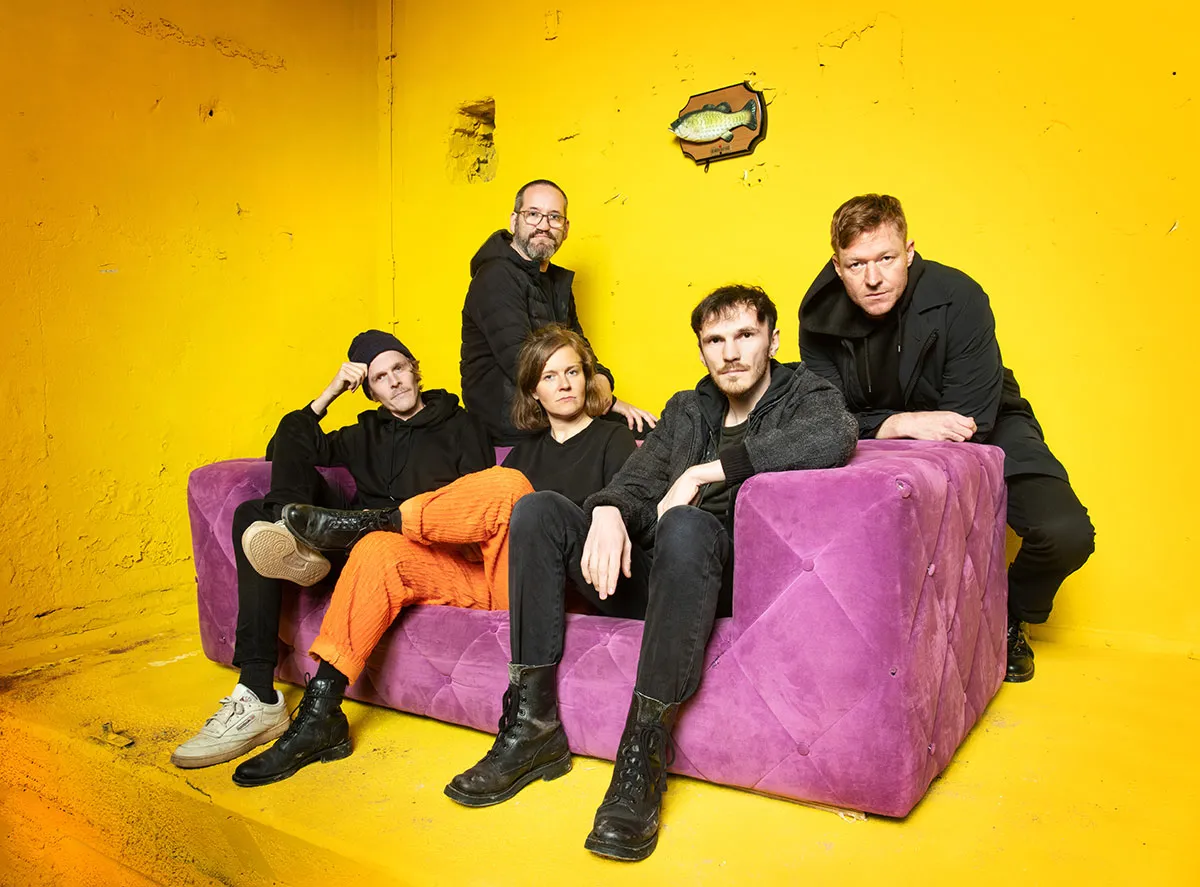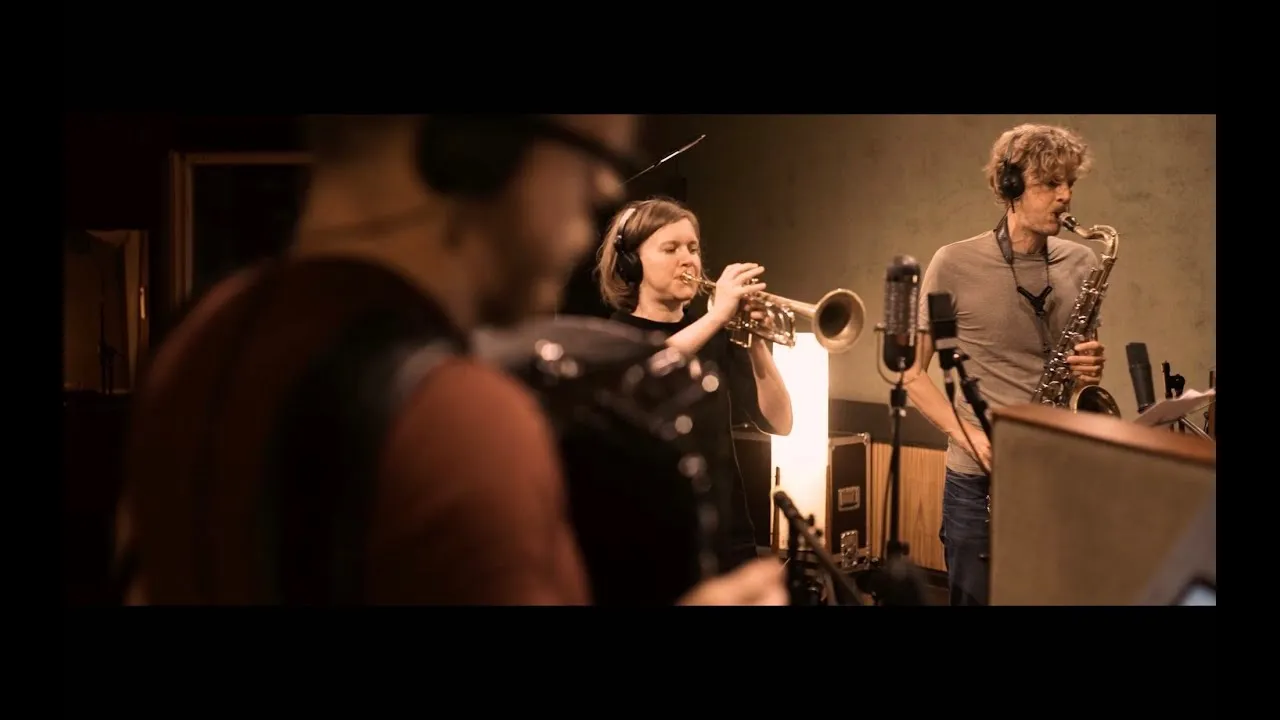Life is full of contrasts. Accepting them takes courage. But to channel our innate desire for harmony through the filter of these contrasts — and then to shape something cohesive, consistent, and holistic from what first appears contradictory or opposing — requires a masterful hand.
Cologne-based trumpeter Heidi Bayer possesses it all: the courage to accept the world as it is — not as it should be — and the rare ability to follow the logic of what appears incompatible, drawing from it the poetry of contrast. And yet — or perhaps because of this — she is a utopian artist who brings to life sounds no ear has ever heard before.
The lineup of her quintet is striking from the outset: Heidi Bayer on trumpet and flugelhorn, Sven Decker on tenor saxophone and bass clarinet, Norwegian accordionist Kalle Moberg, bassist Robert Landfermann, and drummer Oliver Steidle. Incidentally, the band name and album title KORSH are formed from the initials of their first names. While each of the five musicians is a notable bandleader and soloist in their own right, they each bring a unique aesthetic that immediately comes through on the album.
The opening track, “Once In A While,” feels like a snowstorm in midsummer. Forces collide in ways you wouldn’t expect. The accordion bursts into the jazz context of trumpet, saxophone, bass, and drums with such vehemence that it seems to try to take over completely. Yet the voices negotiate, and eventually, a unified direction emerges. None of this is accidental — the piece offers a taste of what unfolds across the album, without giving everything away. KORSH is a journey: through peaks and valleys, through the familiar and the unknown, through clarity and mysticism, through the personal and the abstract — often all at once.
As the saying goes, opposites attract. The contrasts in KORSH are already embedded in the musicians’ individual voices and idioms. Heidi Bayer composes not just for instruments, but for people. She had long been drawn to the accordion but searched extensively for a player who naturally embodied both grace and a love of experimentation. She finally found Kalle Moberg in Norway. His vast sound palette and stylistic range — spanning classical music, jazz, and drones — thrilled her. At times, his accordion sounds like an organ, at others like a bass clarinet, and sometimes like the raw force of nature itself. Working with Moberg was a bold move. "Listening back to the recordings, I realized it could have completely backfired," Bayer admits with humility. "It was just incredibly lucky that it all worked out so well."
But of course, it wasn’t just luck — it was also Bayer’s finely tuned intuition for sounds, voices, and the nuances of individual character. Her choice of the other band members shows this clearly. She shares a long-standing musical friendship with Sven Decker, whom she values for his ability to fully let go. Together, they considered potential rhythm section partners. Drummer Oliver Steidle, based in Berlin, brought the perfect combination of expressiveness and playfulness — and, crucially, a strong willingness to take risks. It was Steidle who suggested Robert Landfermann, already on Bayer’s radar. Landfermann, an extremely empathetic individualist, brought the final balance to the quintet.
And then, of course, there is Heidi Bayer’s own voice. Her range of stylistic nuance and emotional tone is striking. On each track, she adopts a different role — sometimes warm and inviting, sometimes cool and sharp — always with precision and confidence. “It’s not something I consciously plan,” she says, “but I wanted to create a situation where I’d have to leave my own comfort zone. I just wanted to allow myself to express sides of me that aren’t typically heard, but are still part of who I am.”
Heidi Bayer doesn’t search for the biggest common ground between the members of her group. Instead, she draws out their contrasts — and makes the moments of overlap audible. A contradiction is only a contradiction if it’s perceived as a deviation from the status quo. Bayer starts from her own foundation and builds a deeply human, exceptional album on it. KORSH maps out an asynchronous process of coming together and drifting apart — both individually and collectively — with space for freedom of expression and an emphasis on the multiple characters that shape this ensemble. The way personalities shift and interact within such a clearly defined framework has never sounded quite like this before.
Tracklist – KORSH
01 Once In a While – 4:30
02 Fichtenernte – 5:54
03 In der Halle der Bierkönigin – 4:59
04 Ballad For the Brave – 4:43
05 Cookie Dough – 6:01
06 Ballad That Is Not a Ballad – 4:04
07 Trying to Relax. Not. – 3:07
08 Reprise – 2:41


